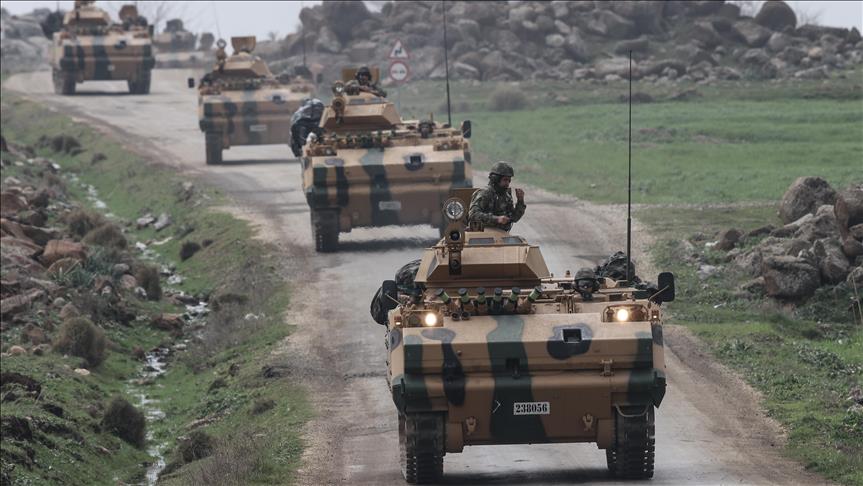How much fuel a speed limit saves

In order to reduce dependence on Russian oil imports, there are calls for a speed limit to be introduced on German autobahns. How much fuel could this save?
“The German Autobahn” – a phenomenon for people beyond Germany and a rarity worldwide. Otherwise you have to travel to Haiti, Nepal or North Korea for unlimited freedom of speed. In Europe, at least, there is no other country without a general speed limit on motorways or corresponding roads.
And that’s exactly why a debate is sparked again. Because a general speed limit on motorways could reduce fuel consumption in Germany and thus the need for imports of crude oil and oil products. That, in turn, could help rapidly reduce dependency on Russian energy supplies — a stated goal given Russia’s onslaught on Ukraine.
Speed limit influences driving behavior
Before discussing the economic and climate-friendly potential of a possible speed limit, it is worth taking a look at German roads and driving behavior there: on 70 percent of the autobahn stretches, you can drive freely at a recommended speed of 130 kilometers per hour. The Federal Highway Research Institute determines how fast people actually drive for the different sections. Without a limit, the average speed is 125 km/h, at a speed of 120 the average speed is 115 km/h and at a speed limit of 100 an average of 103 km/h.
But Philipp Klöckner from the Federal Environment Agency points out a catch: “A large proportion of drivers do not always adhere to the applicable speed limits. At 120 km/h, around 40 percent of drivers exceed the specified speed,” he says. “So it’s not enough to simply look at the average speeds. We include the distribution of the different speeds driven in our calculations. Because fuel consumption does not increase linearly.”
If the car drives faster, the vehicle is exposed to more air resistance and requires more power, i.e. more fuel, to move. Slower drivers cannot compensate for the higher consumption of speeders.
2.1 billion liters saved at 100 km/h
Years ago, the Federal Environment Agency wrote a study on the environmental effects and savings potential of a speed limit on German autobahns. In view of the impending gas and oil crisis, it updated its figures: 2.1 billion liters of fossil fuels could be saved in Germany every year if the speed limit were 100 km/h on the freeways and 80 km/h outside of town. That corresponds to 3.8 percent of fuel consumption in the transport sector.
What effect would that have on Germany’s dependence on Russian oil? “A speed limit could reduce Russian oil imports by five to seven percent,” estimates energy economist Claudia Kemfert from the German Institute for Economic Research (DIW).
Demands for Tempo 30 in towns
The German Environmental Aid, which has long advocated a speed limit of 100 km/h during the day and 120 km/h at night, has tightened its demands in view of the energy crisis. It is now based on the formula 100 – 80 – 30. This means: 100 km/h on the motorway, 80 km/h outside of town and 30 km/h in town across the board. According to their own calculations, the German Environmental Aid even comes up with potential savings of a total of 3.7 billion liters of petrol and diesel in road traffic with this model.
Greenpeace also advocates the three-stage speed limit – limited in time for the duration of the war. The environmental organization sees another fuel-saving effect in the speed limits: if everyone drives at the same speed, there are fewer speed changes. That also uses less fuel.
Car-free Sunday as an option
Greenpeace is also in favor of reviving a measure from the 1973 oil crisis: If a car-free Sunday were introduced twice a month for a year, 1.3 billion liters of fossil fuels could be saved. According to Greenpeace, this corresponds to 2.6 percent of fuel sales in Germany and 1.4 percent of oil imports.
In addition to the savings in fuel, a speed limit would have other positive effects: Even if the motorway network only accounts for 1.5 percent of the road network according to the Federal Ministry of Transport, 40 percent of the CO2 emissions from cars in Germany are caused here, according to the Federal Environment Agency. In its calculations, it assumes possible CO2 savings of 5.3 million tons. With their model 100 – 80 – 30, the German Environmental Aid even comes up with 9.4 million tons of CO2, which would be released less each year.
The Federal Environment Agency has also determined cost savings of up to 4.3 billion euros and mentioned another aspect that cannot be weighed in money: the number of road deaths in Germany could be estimated to be halved.
Cocktail of measures against the energy crisis
The DIW energy expert Kemfert repeatedly emphasizes that a speed limit makes sense, especially in connection with other energy-saving measures. Above all, however, the expansion of renewable energies must progress more quickly. An appeal that aims in the direction of politics.
Another appeal, or rather a recommendation, which is also aimed at individual consumers, comes from the Federal Environment Agency: One should not only drive less and more slowly, but also change one’s behavior in other ways. For example, turn down the heating and use a water-saving shower head.
Especially FDP against speed limit
Implementation of the speed limit has so far been slowed down primarily by the FDP in the Bundestag. Transport Minister Volker Wissing also said that there were no traffic signs for quick implementation. But it doesn’t seem to be completely off the table. The discussion about a speed limit on German autobahns has picked up speed again.
Philipp Klöckner from the Federal Environment Agency is always amazed at the way this is done. “The debate about the speed limit is very emotional. That is surprising for us, because a large part of the population is actually in favor of it,” he says. “But that is hardly noticed because the opponents are particularly loud.”
And possibly still stick to the motto of Markus’ 80s hit: “I want fun, I want fun, I step on the gas, I gas on.”


